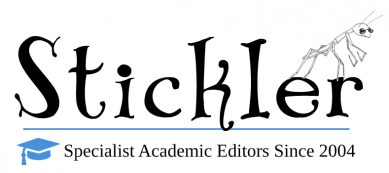“The volume of scientific research being published is constantly increasing, making it harder and harder to get a manuscript accepted. Language quality plays a particularly important role in guaranteeing the success of a submission.”—Elsevier
“Every year hundreds of papers are rejected due to English language editing requirements.”—Wiley
Whether you’re a student or a seasoned academic, getting your work published in a respectable journal is important in furthering your academic career. However, you might be facing frustrating barriers if you are not a native English speaker, since most top-tier English-language journals want articles to be well written, using appropriate and correct academic terminology, before they will even consider publishing them. Across the board, research shows that articles written in clear English are more likely to get published than those in another language or in poor-quality English (Di Bitetti & Ferraras, 2016). In fact, English proficiency is a good predictor of publication output in top journals, even more than total research spending (Man et al., 2004).
Below are a few tips specifically aimed at non-native English speakers, which can get you closer to seeing your work appear in your ideal journal.
Stay Patient and Be Persistent
Nobody becomes an expert in the English language overnight. Mastering a second or foreign language, especially when it comes to academic terms and jargon, takes time and effort. Be patient with yourself and don’t be afraid to take risks and make mistakes. Even having articles rejected from journals can be useful, as this will give you a feel for what editors think about your research and the standard of your overall communication. If you’re not getting the acceptances that you want, take a look at what the editors are saying in their feedback. Study their comments and think about how you can apply them to the next iteration of your writing.
Collaborate with Others
If you find yourself struggling to write in English, a great way to overcome this is by seeking out native English speakers to collaborate with. Reach out to colleagues or other researchers in your field and find potential ways that you can work together to publish work based on shared interests. Collaborating with other professionals is not only a great way to enrich your work overall, but also gives you the chance to learn from native speakers how to strike the right tone, and to pick up some of the terms that frequently crop up in academic writing.
Imitate the Style of Authors You Admire
There’s no better way to practice your English writing skills than to imitate those whose work you admire. Try to find some articles whose style you like and that have been published in your target journals, and examine the ways in which the author utilizes language. How do the words flow together? What tense is the writing in? How does the author structure their sentences? How is punctuation used? Studying other work you respect can help you get a better understanding of how native English functions and give you a formula that you can work from.
Hire a Professional Editing Service
You knew we would get here eventually! But we make no apologies for this point—almost all top-rated journals recommend having your paper edited by a professional prior to submission. For example, Wiley (one of the world’s leading journal publishers) state the following on their website:
“If you are not a native English-language speaker, we strongly recommend that you have your manuscript professionally edited before submission.”
Professional editing services can help to ensure that:
- your article proceeds in a logical manner;
- academic and statistical terms have been used correctly;
- spelling is consistent and correct; and
- there are no typos, grammatical mistakes, or awkward phrasing.
In other words, we can make sure that the text reads as though written by a native English speaker. We know exactly what journals are looking for when it comes to tone and academic language standards, and will also check that your work meets all journal style requirements.
Now through August 31st, we’re offering new customers $20.00 off our proofreading/copy editing services! Just enter the promo code Summerblog20 when you submit your work.*
*Cannot be combined with any other offer, and applies to documents of at least 3,000 words. New customers only. Discount expires at midnight PST on August 31, 2019.

